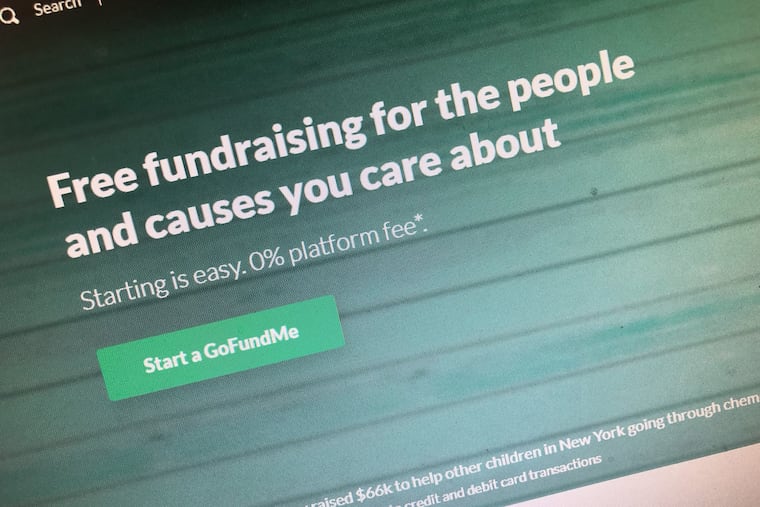Johnny Bobbitt story a ‘perfect example’ of why it’s risky to donate to online fundraisers
The California-based crowdfunding platform, which claims to have helped raise more than $5 billion, said fraudulent campaigns make up less than one tenth of one percent of all campaigns on its website.

The more than 14,000 people who were duped into donating to Johnny Bobbitt Jr.'s GoFundMe campaign will get a full refund, but the alleged scam detailed by prosecutors Thursday is a "perfect example" of the risks in donating through crowdfunding websites, a charity watchdog group said.
GoFundMe will process refunds in the coming days for the more than $400,000 in contributions to Bobbitt's campaign, a company spokesperson said. In doing so, GoFundMe is waiving part of its refund policy that typically limits refunds of up to $1,000 for those who submit claims within 30 days of donating. The campaign ostensibly benefiting Bobbitt began accepting donations a year ago.
"While this type of behavior by an individual is extremely rare, it's unacceptable and clearly it has consequences," GoFundMe said in a statement.
The California-based crowdfunding platform, which says it has helped raise more than $5 billion from more than 50 million donors, said fraudulent campaigns make up less than a tenth of a percent of all campaigns on its website.
Stephanie Kalivas, an analyst for Charity Watch, said there's no way of guaranteeing crowdfunding campaigns are legitimate or will use donated funds for stated purposes. Unlike nonprofit charities, online fund-raisers are not subject to financial reporting requirements or other regulations, she said.
"Most of the time donors are not going to know if they've been taken advantage of," she said, noting that the Bobbitt campaign was unusual in receiving national media attention. "It's just not a smart way to donate, because it's just too easy for scammers to take advantage of people on this website."
Kalivas said donors should contribute only to online campaigns run by people they know or by public charities.
Burlington County prosecutors said Thursday that the heartwarming story behind the Bobbitt campaign – that the homeless veteran gave his last $20 to help a stranded motorist buy gas – was a "completely made up" scam.
GoFundMe's terms and conditions make plain that the platform doesn't guarantee that campaign organizers using its website are honest.
"All donations are at your own risk," the user agreement states. "We do not and cannot verify the information that campaign organizers supply, nor do we guarantee that the donations will be used in accordance with any fundraising purpose prescribed by a campaign organizer or charity."
Bobby Whithorne, a GoFundMe spokesperson, said the company does have a "dedicated team" that contacts campaign organizers or beneficiaries to ensure money goes to the right place. For example, Whithorne said GoFundMe contacted the organizer of another campaign for a homeless man who was mocked for shaving on an NJ Transit train. That effort raised $42,000.
Whithorne called the Bobbitt campaign "unique" because funds usually go directly to the beneficiary, not the individuals who started the campaign. The couple who organized the Bobbitt fund-raiser, Kate McClure and Mark D'Amico, spent the money on a BMW, a New Year's trip to Las Vegas, and high-end handbags, authorities said.
Asked if GoFundMe has changed any of its internal policies in light of the Bobbitt fiasco, Whithorne said that "we always take steps to improve our security measures," including a trust and safety team monitoring the platform round the clock.
There are typically other limitations in GoFundMe's guarantee policy. Rather than offer refunds, GoFundMe may redirect donations to the intended beneficiary, or provide refunds in the form of credits redeemable for donations to other campaigns, according to the policy.
Launched in 2010, GoFundMe allows users to raise money to pay for a variety of causes, from medical bills to college tuition. Users create campaign web pages that include personal stories, photos, and fund-raising goals. The campaign pages can be shared on social media and donors can make contributions on GoFundMe's website. Campaign organizers can then withdraw donations by wire transfer or check.
GoFundMe charges a 2.9 percent payment processing fee plus 30 cents per donation to cover "the cost of third-party card processors and the safe and secure transfer of funds," Whithorne said.